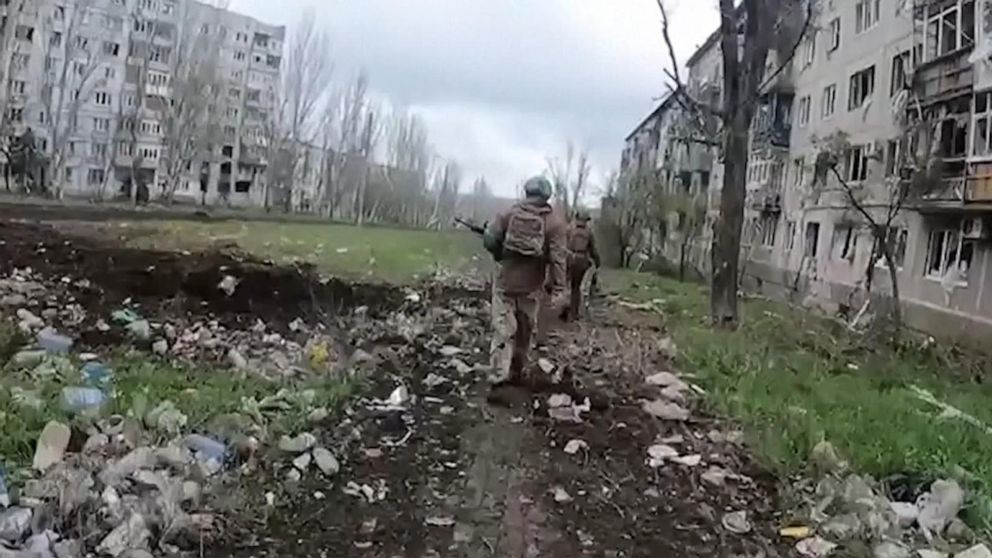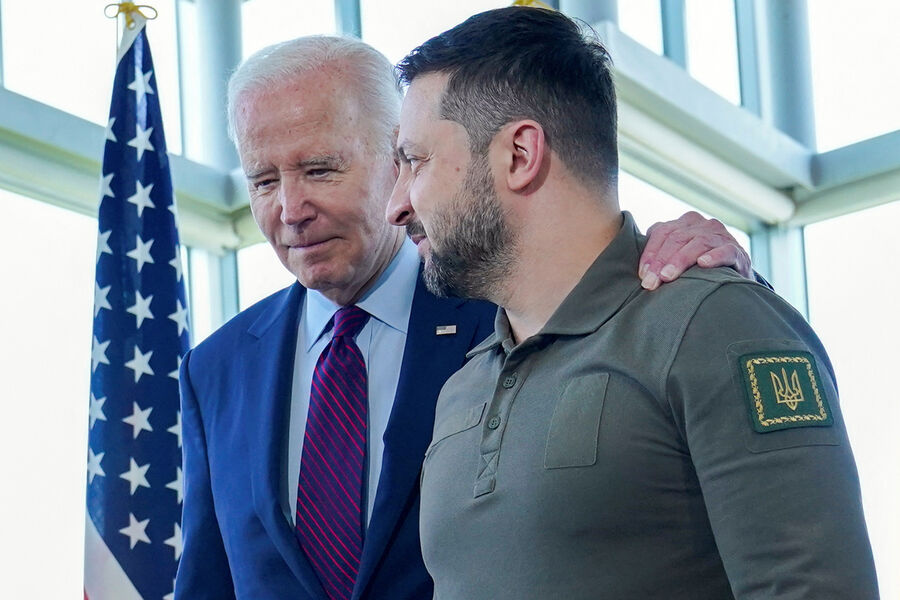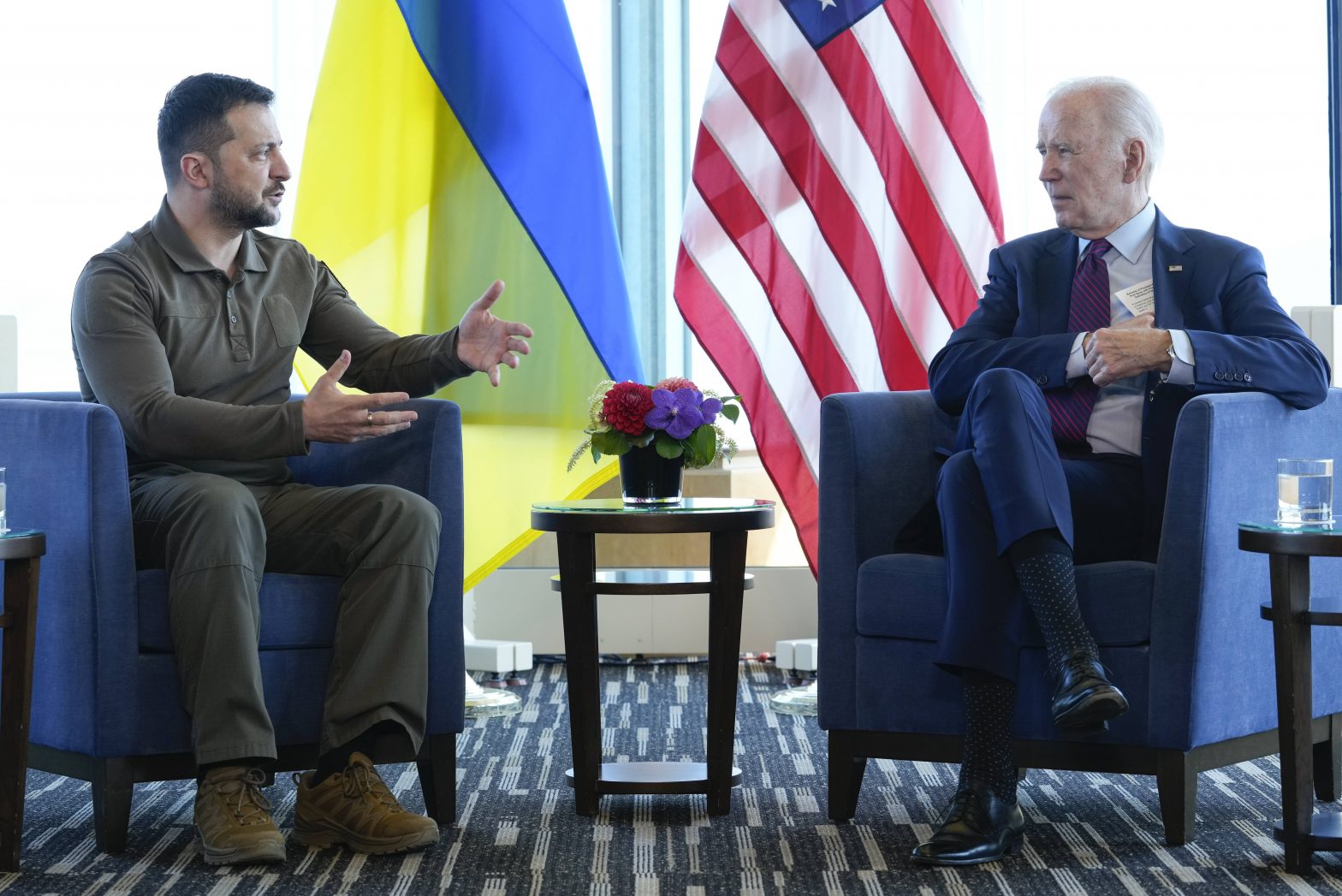The Group of Seven (G7) talks held in Japan witnessed an extraordinary display of unity and determination as world leaders gathered to discuss the ongoing crisis in Ukraine. At the center of attention was Ukrainian President Volodymyr Zelensky, who made an impassioned appeal for international support in the face of escalating Russian aggression. Zelensky’s personal presence at the summit underscored the gravity of the situation and the urgent need for global solidarity.
The talks unfolded against the backdrop of the Wagner mercenary group’s audacious claim of capturing the Ukrainian city of Bakhmut, a strategic location that had been subjected to intense fighting for months. This brazen act highlighted the urgent necessity for the international community to present a united front against Russian aggression, lest it embolden further incursions.

Dressed in military green, Zelensky stood shoulder to shoulder with world leaders, all clad in suit jackets, for a powerful photo-op in Hiroshima. The symbolism was not lost on anyone, as the city itself had once endured the devastating impact of a nuclear bomb. The visual display of support underscored the unwavering commitment of the international community to Ukraine’s cause.
Zelensky seized the opportunity to address the gathering, passionately advocating for increased support, including the provision of powerful weapons and tougher sanctions against Moscow. He emphasized that as long as invaders remained on Ukrainian soil, there could be no room for negotiation with Russia. Urging world leaders to exert their collective power, he outlined a step-by-step approach to restoring peace in the region.

Throughout the weekend, Zelensky engaged in a series of meetings, including a significant encounter with United States President Joe Biden. In a significant show of support, Biden announced a new $375 million security assistance package for Ukraine, underlining the United States’ unwavering commitment to bolstering Ukraine’s defense capabilities. The decision to allow the deployment of F-16 fighter jets and to train Ukrainian pilots served as concrete examples of this steadfast support.

The fate of Bakhmut loomed large during the talks, serving as a stark reminder of the high stakes for Ukraine. While Zelensky denied that the city had fallen, he acknowledged the extensive destruction it had endured. The Ukrainian military contested the claims made by the Wagner group and maintained that the battle for Bakhmut was still ongoing, reflecting the fierce determination to resist Russian aggression.
The G7 leaders, united in their stance against Russia following its annexation of Crimea, reached a landmark agreement on a significant new sanctions package targeting the Kremlin’s war machine. This display of unity and determination demonstrated Russia’s isolation on the international stage and the resolute commitment to hold it accountable for its actions.
Nevertheless, concerns regarding waning political support and potential deadlock cast a shadow over the proceedings. Dysfunction within Washington, exemplified by the protracted negotiations over raising the federal borrowing limit, raised questions about the sustainability of political backing for Ukraine. G7 leaders sought assurances that the United States would not default on its debt, as it would have profound implications for the overall support available to Ukraine.
Zelensky’s sobering warnings of potential Russian escalation resonated against the symbolic backdrop of Hiroshima, serving as a poignant reminder of the catastrophic consequences of unchecked aggression. The G7 summit provided an invaluable platform to reinforce the urgency of the situation and the need for a unified international response to safeguard peace and stability in the region.
While some invited guests expressed reluctance to publicly condemn the war in Ukraine, notable leaders such as Indian Prime Minister Narendra Modi acknowledged the global significance of the conflict and pledged their commitment to finding a resolution. Modi emphasized the humanitarian aspect of the crisis, underlining the need for concerted efforts to alleviate the suffering of those affected.
In conclusion, the G7 talks in Japan showcased a remarkable display of unity and determination among world leaders in their unequivocal support of Ukraine against Russian aggression. The discussions culminated in a new sanctions package and served as a rallying cry for international support in Ukraine’s defense capabilities. As the conflict in Ukraine continues to be a pressing global concern, the summit provided a crucial platform for diplomatic efforts to promote peace, stability, and justice in the region.
©world-news.biz
